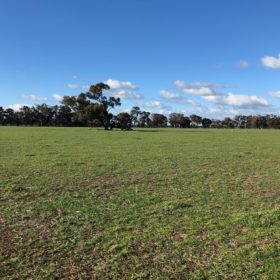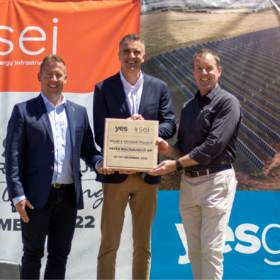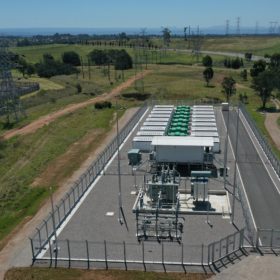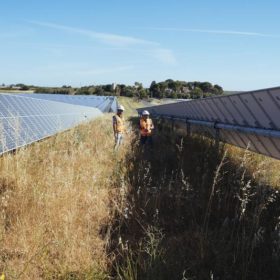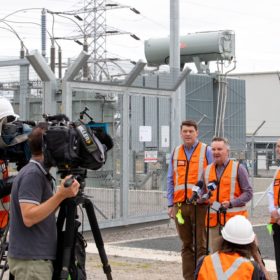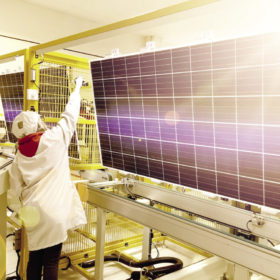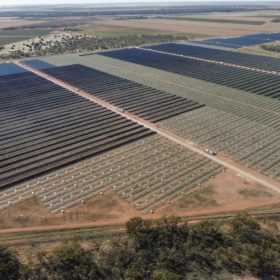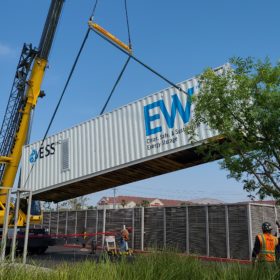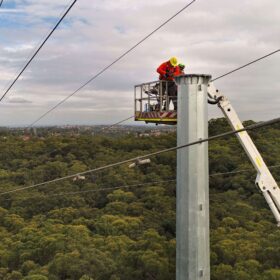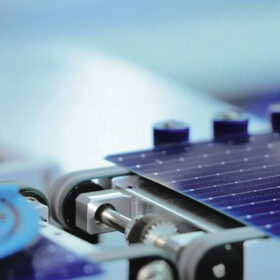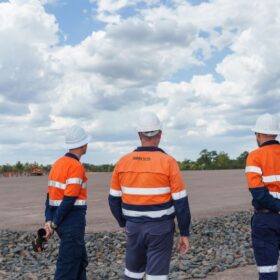Danish renewables giant buys Queensland clean energy hub
Danish investment firm Copenhagen Infrastructure Partners has sharpened its focus on long-duration storage in Australia, announcing it has acquired the proposed Bowen Renewable Energy Hub project that is expected to combine 1.4 GW of pumped hydro storage with huge solar and wind generation.
FRV reaches financial close on another solar farm, second big battery to come
FRV Australia has reached financial close on its Walla Walla Solar Farm thanks to a PPA with Microsoft. The company is also progressing its second big battery in Australia, the 250 MW / 500 MWh Gnarwarre battery in Victoria, after winning support from the Australian Renewable Energy Agency.
SA solar-plus-battery project energised in ‘fast’ mid-scale push across NEM
The 5 MW Woods Point Solar and Storage Farm in South Australia is open – it is one of three identical solar storage projects being commissioned by SEI and Yes Group in December, and part of a much larger mid-scale play.
Synthetic inertia on show as Wallgrove big battery reaches full capacity
The first large-scale battery to be connected to the grid in New South Wales has officially reached full production, providing fast frequency response and synthetic inertia services to the transmission network as the state looks to fill the soon-to-be-revealed gap created by retiring coal-fired generators.
Danish developer grabs major stake in 3.6 GW Queensland project
Danish renewable energy developer European Energy has acquired a majority stake in a 3.6 GW integrated solar and battery energy storage facility and green hydrogen production plant being developed near Gladstone on the central Queensland coast.
ARENA big battery deal to deliver 4.2 GWh of energy storage
The Australian government has announced a $176 million (USD 117.5 million) funding injection which it expects will unleash almost $3 billion of investment in advanced battery technology, delivering a step change in grid-forming capability across the National Electricity Market.
Canadian Solar enters TOPCon solar module business
Chinese-Canadian PV manufacturing heavyweight Canadian Solar said it will begin mass production of 690 W TOPCon products in the first quarter of 2023. The modules will feature a cell efficiency of 25.0% and a bifaciality factor of more than 85%.
Mint targets Australian opportunities with $300 million investment
A new player has entered the Australian renewable energy sector with New Zealand-based infrastructure investor Infratil confirming that its new majority-owned clean energy platform Mint Renewables will look at wind, solar and energy storage opportunities with an initial investment of $300 million (USD 203 million).
Iron-flow battery arrives at Queensland testing centre ahead of major ‘perfectly suited’ manufacturing play
Moving with Australia’s Zeitgeist, Stuart Parry, managing director of Energy Storage Industries, is working to bring battery manufacturing onto Australian shores – and his approach is, if not novel, certainly well advanced. “It’s about being smart in how we do it,” Parry tells pv magazine Australia.
Battery maker and solar developer team up for storage play across 8 Australian projects
Chinese battery maker Hithium and Australian solar developer Sun Valley HK Group have agreed to work together on eight solar farms either under construction or in planning in Australia, presumably deploying Hithium batteries at the sites.
